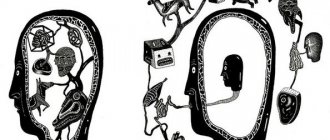When work communication moves online, meetings and meetings become a little more difficult. Body language almost completely disappears and it is no longer possible to encourage a colleague with an approving nod or smile during a presentation. It’s impossible to chat informally over a cup of coffee, and onboarding is a separate quest.
We have to somehow get out of it, introduce online activities, coffee breaks or informal calls. Unfortunately, at such meetings there are often awkward pauses, especially at the very beginning of the conversation. How to defuse the situation? The Hurma team has selected for you an impressive list of questions on various topics that you can use for your employees.
Many of the questions look amusing or even funny - just what you need to slightly relieve the tension of the call. The main thing is to choose the appropriate questions for your specific situation. At the board of directors, perhaps, you shouldn’t ask about your favorite drink, but at an informal meeting with colleagues, why not?
Save the article to your bookmarks so as not to lose it. You can also select the questions that you liked the most and save them in a separate file. Or maybe even print it out and hang it near your workspace so that you have a kind of cheat sheet for awkward pauses.
We have divided the questions into several categories to make it easier for you to navigate through them. We hope they will save you from pauses and allow you to get to know your employees better.
Questions about remote work
- How do you prefer to work: at home or in the office? Why? Would you like to combine remote work and office work and, if so, how?
- What is the most challenging thing about working remotely for you? And the simplest thing?
- Do you have your own “office” (separate workplace) at home?
- Will you show us your “remote” workplace?
- Where do you most often work from home? At your desk? At the kitchen table? On the balcony? On the couch? In your favorite chair?
- Let's be honest, how often do you work while lying in bed?
- What does your morning routine look like when you work from home and don't have to get ready to go to the office?
- What is your top life hack to avoid distractions while working from home?
- How do you stay productive and motivated while working remotely?
- What does your remote work outfit look like? Do you wear Hawaiian shorts under a dress shirt because you still can't see the bottom on a video call?
- How many cups of coffee/tea do you drink per day?
- Are you a morning person or a night owl? When is it most convenient to work and is it possible to organize a convenient schedule remotely?
- How do you think we can improve our calls?
- Do you like to drink caffeinated drinks (tea, coffee, cola) while working?
- What good movie or TV series have you watched lately?
- Which book do you think is the best you have read and why?
- What do you consider the best professional literature?
- If you could learn one new hard skill soon, what would it be?
- If you could develop one new soft skill any time soon, what would it be?
- Do you like to play sports? What sport do you like best?
- If you could write a book, what genre would you choose? Fantasy? Thriller? Novel? Historical fiction? Professional literature?
The power of pause
Sometimes a pause can be very helpful in a conversation. Experienced journalists, noticing that the interlocutor is hiding something, fall silent and pause at the end of their opponent’s answer. It allows you to extract more information from a person.
Dick Cavett said:
A pause can hold the interlocutor and then force him to continue. Just demonstrate that something needs to be done to fill the resulting dead silence. At the moments when you fall silent or simply say “yeah” in monosyllables and pause, the interlocutor will begin to frantically think about what else to add to what has already been said. Sometimes he can share amazing things that he never intended to tell.”
It’s easy to pause—just mentally count from one to five.
Funny Questions
- The zombie apocalypse is coming, assemble a team of three people. Why did you choose these people?
- Which emoji/sticker do you use most often?
- Tell us about your worst/inappropriate outfit?
- What about the worst haircut?
- Who was your favorite actor/actress growing up?
- Are you compared to any celebrities? With whom?
- If you could bring back any fashion trend, what would it be?
- What type of transport do you like most?
- Imagine hosting your own late-night talk show. Who would you invite as your first guest?
- Imagine that a film is being made based on your biography. What genre would it be and who would play you?
- Do you want to become famous? In what area?
- Do you like to sing karaoke? What's your favorite song?
- What food did you hate as a child? How do you feel about this now?
- If you had to eat one thing for the rest of your life, what would it be?
- Imagine that you have a choice: to remain on a desert island alone or with your worst enemy. Which would you choose and why?
- If aliens flew to Earth tomorrow and asked you to fly with them, would you agree?
- 60s, 70s, 80s, 90s: which decade do you love most and why?
- What's your favorite thing you bought this year?
The benefits of curiosity
An aspiring journalist should strive to develop this quality in himself. Curiosity is the main driver of a successful and interesting interview. A person who sees a sincere interest in his life and problems is much better at having a frank conversation.
Professional interviewers are able not only to listen to what a person is saying, but also to capture nonverbal gestures that demonstrate fatigue, irritation, or an agitated state of the interlocutor.
This skill allows you to understand in time when to move on to the next block of conversation.
Questions with a touch of philosophy
- What's the best advice you've ever received?
- What do you think are the most amazing scientific discoveries?
- What are you dreaming about?
- If you were to compete in a Miss/Mr World type competition, what would you enter in the talent competition?
- What would you title your autobiography?
- Imagine being very rich and no longer having to work. What would you do?
- If you had to delete all but 3 apps from your smartphone, which ones would you keep and why?
- What is your favorite magical or mythological animal?
- Who is your favorite fairy tale character? Would you like to be in his/her place?
- Tell us about your dream house/apartment.
- Imagine that you are about to sail around the world. What would you name your ship and why?
Poll too long
Don't ask a famous person too long a question. It's better to split it into several sentences.
During a dialogue, you should adapt as much as possible to your interlocutor. You can try to copy his gestures, speech and body language.
For example, by talking loudly and quickly with a quiet interlocutor, a journalist will create an uncomfortable environment, and the interview will not turn out as planned.
Questions about interests and preferences
- If you were an Olympic athlete, what sport would it be and why?
- Who do you consider to be the best in the business world and why?
- Tell us about your worst job.
- Which famous person in history would you like to be friends with and why?
- If you had a superpower, what would it be and why?
- What musical group or performer would you like to invite to your party?
- What did you want to become as a child?
- Do you have a favorite tradition or holiday? What is this?
- What fictional world or place would you like to visit?
- What do you like to eat for breakfast?
- What is your favorite time of day and why?
- Coffee or tea?
- Teleportation or flight?
- What is your favorite series and why?
- If you had a time machine, would you go back in time or into the future?
- Do you think you would be comfortable living without your smartphone for a day?
- What's your favorite dessert?
- What game did you love as a child?
- Are you a traveler or a homebody?
- If you weren't working where you are now, what would you be?
- What is your favorite city/country that you have visited?
- What would you do if you met your idol?
- Do you have a so-called “bucket list” - a list of things that you need to do in life? What is the most important/interesting thing about it?
- Tell me a fun fact about yourself.
- What is your favorite dish and why?
- Do you play any musical instruments? On what?
- Do you like cats or dogs more?
- How many languages do you know?
- What's the strangest food you've ever eaten?
- What's the most unusual thing you've ever done?
- What wallpaper do you have on your phone/computer?
- Imagine being able to choose an unlimited supply of a certain product for life. What will you choose?
- What time of year do you love most and why?
- Do you like to sing/dance?
- What fruits and vegetables do you like most?
How to script a conversation?
Before you begin sampling and writing questions, it is important to consider the following points:
- Who are you interviewing? Name, achievements, personal characteristics, etc.
- Who are you taking it for? Target audience who will read/watch this interview.
- Why are you doing this? Target. What exactly do you want to know? What specific achievements of this person are you focusing on?
- Will the punchline questions be the most important and interesting for the target audience?
- The size of the final version of the conversation.
The interview should not sound smooth, otherwise interest in it will quickly be lost. Punch questions act as an interest trigger, so they must be included if you want to attract the maximum amount of attention from the audience to the interview. The interview is compiled in blocks and schematically looks something like this:
1
- Problem + Plot (1-2 questions);
- Climax (1 main question + 2-3 clarifying questions);
- Denouement (1-2 questions).
The number of blocks depends on the permissible amount of information.
2
This can be illustrated as follows:
- When did you decide to start a business, and what were the obstacles at the very beginning?
- Reveal the secret of how to start a business from scratch? On a low budget? With a lack of connections? What loopholes? What to avoid?
- When did your first result appear? How did it live up to your expectations?
The first block can be conditionally called “Starting a business”, then you create the same blocks “Promotion”, “Pits”, “Takes off”, etc.
“If only” questions
- If you could talk to any fairy tale/movie character, who would you choose and why?
- If you could live in any country for a year, which would you choose and why?
- If you could commit any crime and get away with it, what would you do and why?
- If you could see any movie again for the first time, what would it be and why?
- If you could live in any country, where would you live?
- If you could choose two famous people to have dinner with, who would you choose?
- If you could be an animal, what would you be and why?
- If you could trade places with anyone in the world, who would it be and why?
- If you were going to change your name, what would you call yourself?
- If you had a personal assistant, what would you delegate to him?
- If you could instantly become an expert at anything, what would it be?
- If you were guaranteed anything (other than money), what would you choose?
- If you had to teach one subject, what would it be?
- If you could learn any language (other than English) instantly, what would it be?
- If you could become immortal, at what age would you stop aging and why?
- If you were on a reality show, which show would you choose and why?
- If you could eliminate one thing from your daily routine, what would it be and why?
- If you could go to Mars, would you go? Why yes, why not?
- If you could teleport right now, where would you be teleported to and why?
- If you could write a book that was guaranteed to become a bestseller, what would you write about?
To support a person
Sometimes it is difficult for people to admit that they would like to discuss things that are bothering them. In this case, the best you can do is ask a few gentle questions.
— Would you like to share what worries you?
“I’m always ready to support you when you need it, you understand that, right?”
- Did something happen to you? Maybe you want to talk about this?
- How are you feeling, are you okay?
“I’m worried about you and I want you to understand that I’m always here for you, okay?”
Questions about selection
- Would you rather live in the ocean or on the moon?
- Would you rather lose all your money or all your photos?
- Would you rather be able to fly or become invisible?
- Would you rather live where it's always cold or always hot?
- Would you rather always be a little late or arrive a little early?
- Would you rather give up your smartphone or computer?
- Would you rather live without heat and AC or without social networks?
- Would you rather be the funniest or the smartest person in the room?
- Would you rather run at 100 km/h or fly at 10 km/h?
- Would you rather be a superhero or the best chef in the world?
- Would you rather be an Olympic gold medalist or an astronaut?
Based on materials from Museum Hack. Always translated and adapted by your Hurma System team :)
- Team building
Useful tools
There is no need to reinvent the wheel and try to find the golden mean for conducting a good biographical interview on your own through trial and error. You can use techniques that other people have successfully used.
For example, Canadian journalist John Sawatsky spent many years studying and analyzing the best interviews and eventually formulated the following rules for writing good questions:
- Open.
- Neutral.
- Short and easy to understand.
Sawatsky listed the following unsuccessful questions:
- Affirmative sentences instead of interrogative ones.
- Too long and overloaded with details.
- Evaluative words and the opinion of the interviewer in the question.
- Interviewer's guesses.
- Exaggerations.
- Questions that can be answered in one word.
Another useful tool for an aspiring journalist is the Proust Questionnaire. He did not compile a questionnaire, he simply filled out the questionnaire suggested by his friend. People liked his answers so much that throughout the second half of the 20th century, these questions were used in many television interviews with guest celebrities. Here they are:
- What is your characteristic feature?
- How do you see happiness?
- What is your biggest misfortune?
- What kind of person would you like to be?
- What country do you want to live in?
- Favorite color?
- Who are the best writers in your opinion?
- What poetry and poets do you prefer?
- Who is your favorite literary character?
- Favorite hero in reality?
- Favorite heroine from history?
- What do you hate?
- Characters from history that you despise?
- What moment in military history do you value most?
- Reform that you value most?
- What special ability do you want to have?
- How would you rather die?
- What is your current state of mind?
- Which vices are you most lenient with?
How do you keep your IT knowledge up to date?
What's the catch?
This question comes up often in interviews, but it is not as simple as it seems. It all depends on the approach of the questioner. Let’s say you can say that you watch some YouTube channels, but management considers such knowledge to be superficial and will suspect you of being an insufficiently competent employee whose knowledge is limited to “C++ in 5 minutes” style video tutorials.
How to answer?
In addition to video lectures, list books, articles, websites, podcasts that form or complement the existing body of knowledge. Courses are a big plus, face-to-face training is especially appreciated, but online training is also good.
9
Why did you choose our company?
What's the catch?
Allows you to weed out those who drool only at the numbers in the “Salary” column, and those who do not even know what the company does. It is clear that some are looking for at least some office where they can hire, but put yourself in the employer’s shoes: would you hire a candidate who doesn’t care about what you do?
How to answer?
Study the website, social networks and other possible resources where there is information about the company’s activities, its advantages and achievements, and then answer based on this information.
8
What does success mean to you?
What's the catch?
The concept of success is very subjective and any answer will be interpreted in terms of the employer's goals. There is a fine line between initiative and ambition, and if, for example, you say that success for you is a high position, the interviewer may see you as a person who is ready to go over your head for the position of director.
How to answer?
This question invites further discussion. Again, refer to the job description, determine what is expected of the candidate, and play to that. For example, you might say that your definition of success is being able to put your experience into practice and see the results of your work.
11
“They gave you an elephant. You cannot give it away or sell it. What would you do with an elephant?
Of course, there is no right answer to this funny question, but it gives you insight into how a person prioritizes and solves problems. The candidate might say, "Since I don't have room to house the elephant, I'd probably send him on vacation" or "I'd feed him and then go to work." And you determine how he acts in unexpected situations.
Prepare, but be prepared for rejection: How to convince your boss to raise your salary
25% of Russians would return to the last job they quit.
People want to save, but spend instead: the illusion of financial responsibility











